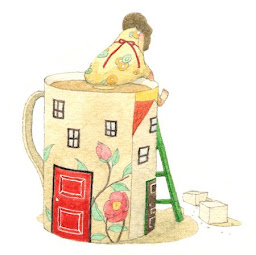Articles
A hug a day keeps the doctor away
Laura Barton | July 31, 2007
"EVERYBODY NEEDS TOUCH, especially the elderly," says Beata Aleksandrowicz. "Very often they are alone, their partners have gone or have died or they're sick, and nobody is touching them." Aleksandrowicz, a massage therapist, is speaking about a project she launched last month that saw therapists across England give free hand massages to elderly people in nursing homes. The response was heartening. "I had reactions such as, 'Oh, I had no idea that I need touch so much' or 'Oh, it's like I'm in fairyland!' "
Bertrand Russell once wrote: "Not only our geometry and our physics, but our whole conception of what exists outside us is based upon the sense of touch." But our experience of touch is dwindling. Increasingly we live alone, have virtual friends, shy away from any kind of physical contact with strangers for fear it might be unhygienic or inappropriate or could become violent.
The effects of not touching can prove detrimental to our wellbeing, both as individuals and as a society. "When you touch or are touched, you get the feeling of being connected with yourself and with others," Aleksandrowicz says, placing one hand on my arm. "When I touch you, you feel my touch - so by my touch you feel that you exist and you can connect with me. It is a feeling of being important, of being taken care of."
A 1997 study into the amount of touching and aggression among adolescents looked at the behaviour of 40 teenagers in McDonald's outlets in Paris and Miami. It found American adolescents spent considerably less time stroking, kissing, hugging and leaning against their peers than their French counterparts did.
Interestingly, the Americans showed more self-touching, such as playing with rings on their fingers, wringing their hands, twirling hair, wrapping arms around themselves, cracking knuckles, biting their lips, and also behaviour that was more aggressive, verbally and physically, towards their peers.
These findings are worrying, particularly because research suggests an absence of touching and physical interaction during adolescence may result in violent behaviour in later life. Touch deprivation appears to lead to a depletion in norepinephrine and serotonin, which, with dop-amine, are neurotransmitters affecting mood. When levels of norepinephrine and serotonin fall, levels of dopamine are left uninhibited, leading to the impulsive, often aggressive, behaviour associated with high levels of dopamine. (Research also suggests that levels of norepinephrine and serotonin may be increased through touch.)
Even though we're isolating ourselves from it, humans crave physical touch. It is one of the reasons people keep pets, Aleksandrowicz believes. "Because they can touch them, they can exchange warmth with them."










April 15, 2009 at 4:49 PM
Jacqui,
I love to be touched! My dh thinks it's a little weird but I love to touch and be touched.
When my children were little I would constantly touch them- stroke or caress their arm, back, leg, etc
Whenever I'm not well i need touch...thankfully I have 2 children who also like to touch so Miss A or Master C will happily oblige.
Touch just seems to suck stress out of me.
April 16, 2009 at 4:18 AM
Isn't that amazing! There is an instructor at the gym who is very "touchy" and where else once I would not have liked it now I appreciate that she is meeting her needs and giving out all at the same time! She can't talk to anyone without reaching out for their hands to hold!! it is sweet